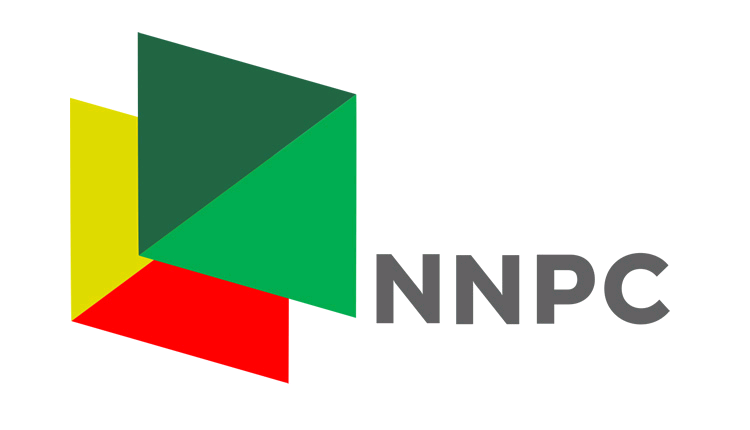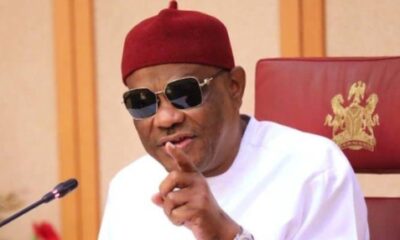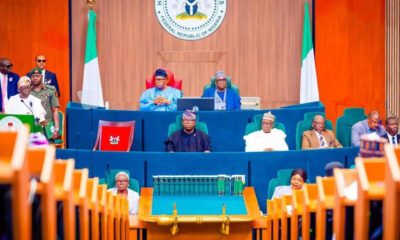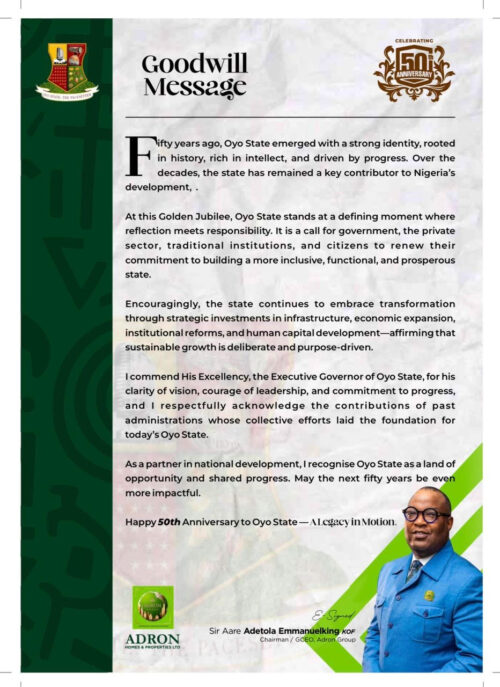The World Bank has revealed that the Nigerian National Petroleum Company Limited has only been remitting 50 per cent of revenue gains from the removal of the Premium Motor Spirit subsidy to the Federation Account. This highlights concerns about fiscal transparency and revenue management in Nigeria’s downstream petroleum sector following deregulation.
This disclosure is contained in the latest World Bank Nigeria Development Update, which highlights concerns over fiscal transparency and revenue management following the deregulation of the downstream petroleum sector. The report, crucial for understanding Nigeria’s economic situation, points to issues with NNPCL’s revenue remittances.
It said out of the N1.1tn revenue from crude sales and other income in 2024, the NNPCL only remitted N600bn, leaving a deficit of N500bn unaccounted for. This significant shortfall raises questions about NNPCL’s financial operations and its impact on Nigeria’s Federation Account.
The biannual report, titled “Building Momentum for Inclusive Growth,” said the national oil company used the remaining amount to settle its debt arrears. This explanation from the World Bank sheds light on why the full revenue from subsidy removal has not reached the Federation Account.
In 2023, President Bola Tinubu received commendation from international financial agencies after he announced the removal of controversial petrol subsidies, a move that tripled petrol prices overnight but was projected to save the government billions of dollars annually. This policy shift was a key moment in Nigeria’s economic reforms.
The decision, part of broader economic reforms, was expected to free up funds for critical infrastructure and social programs. However, the intended benefits are now under scrutiny due to the issues with revenue remittance highlighted by the World Bank.
But the plan was scuttled after backlash from Nigerians, as prices of household commodities more than tripled. The government only allowed full deregulation in October 2024, after the commencement of the Dangote refinery. This delay in full deregulation has further complicated the expected revenue gains.
Despite the official removal, the World Bank report revealed that the NNPCL delayed the transfer of the associated revenue windfall, only commencing remittances to the Federation Account three months later, in January 2025. This lag in remittance has affected the immediate fiscal benefits of subsidy removal.
It said the national oil firm has since been remitting just half of the proceeds, with the remainder reportedly used to offset legacy arrears. This consistent partial remittance is a key concern raised by the World Bank regarding NNPCL’s financial transparency.
The World Bank noted that the Federal Government’s revenues for 2025 are anticipated to be 70 per cent from oil and 30 per cent from non-oil sources, assuming full remittance of the fiscal savings from PMS subsidy removal. This projection underscores the importance of NNPCL’s full compliance for Nigeria’s fiscal health.
“The fiscal outlook remains cautiously optimistic but hinges on the necessary consolidation of recent advances. First, it is essential to ensure that the full revenue gains from the removal of the PMS subsidy—estimated at 2.6 per cent of GDP in 2024—are transferred to the Federation.
“Despite the subsidy being fully removed in October 2024, NNPCL started transferring the revenue gains to the Federation only in January 2025. Since then, it has been remitting only 50 per cent of these gains, using the rest to offset past arrears,” the World Bank stated. This direct quote from the World Bank’s report emphasizes the core issue of NNPCL’s partial remittances.
A further breakdown showed that NNPCL was the only laggard, remitting just N0.6tn to FAAC in 2024, down from N1.1tn in 2023. This comparison highlights the significant drop in NNPCL’s remittances to the Federation Account Allocation Committee.
The World Bank attributed this drop to the implicit subsidy regime that persisted until the third quarter of 2024. This provides context for the lower remittance figure from NNPCL in 2024.
It explained, “Gross FAAC revenues surged in 2024, but a large share was deducted and remitted back as revenues to states and local governments.
“Gross revenues collected by Nigeria’s main revenue agencies surged in 2024, despite minimal remittances from NNPCL. FAAC data show that gross revenues collected by the main revenue agencies (FIRS, NCS, NNPCL, and NUPRC) rose significantly from N16.5tn (7 per cent of GDP) in 2023 to N29.5tn (10.6 per cent of GDP) in 2024.
“The largest revenue increases came from FX-denominated sources that benefited from the removal of the FX subsidy, including oil revenues (royalties, taxes, signature bonuses), customs revenues, and the foreign trade-related component of VAT.” This data from the World Bank illustrates the broader revenue trends in Nigeria, contrasting NNPCL’s performance with other agencies.
While other FX-denominated revenue sources, such as oil royalties, taxes, and customs duties, recorded significant increases, the report noted that NNPCL remained the major laggard in remitting revenues to the Federation Account Allocation Committee. This reinforces the World Bank’s concern specifically regarding NNPCL’s revenue remittance practices.
“However, NNPCL was the only laggard, remitting just N0.6tn to FAAC in 2024, down from N1.1tn in 2023, largely due to the implicit PMS subsidy, which remained in place until the end of September 2024. Although the subsidy was fully removed on October 1, 2024, NNPCL did not start transferring the resulting revenue gains to the Federation until January 2025. From that point, it began remitting 50 per cent, with the other half being used to settle past arrears.
“As of February 2025, the bank noted that NNPCL’s claimed arrears stood at N7.8tn, while the Federation’s claims totalled N6.1tn, leaving net arrears of N1.7tn still owed to the national oil company.
“In spite of a sharp rise in gross revenues by the country’s main revenue-generating agencies from N16.5tn in 2023 to N29.5tn in 2024, NNPCL’s remittance fell to N600bn in 2024, down from N1.1tn in the previous year.” This detailed excerpt from the World Bank’s findings provides specific figures and timelines related to NNPCL’s revenue remittances and arrears.
To enhance fiscal discipline, the World Bank recommended a forensic audit of NNPCL’s finances and the adoption of standardised reporting templates to FAAC. These recommendations aim to improve transparency and accountability in NNPCL’s financial dealings.
It also called for improved transparency in oil revenue accounting and stronger public financial management systems. The World Bank emphasizes the need for systemic improvements in how Nigeria manages its oil revenues.
The Bretton Woods institution warned that unless full subsidy gains are channelled into the Federation Account, Nigeria’s fiscal consolidation efforts may be undermined, limiting the government’s ability to invest in infrastructure and social development. This warning highlights the potential negative consequences of NNPCL’s partial remittances on Nigeria’s economic progress.
The report stressed that resolving net arrears and ensuring full remittance of subsidy savings are critical for maintaining fiscal stability. According to the World Bank, addressing these issues is crucial for Nigeria’s overall financial health.
It stated, “The fiscal outlook remains cautiously optimistic but hinges on the necessary consolidation of recent advances.” This reiterates the World Bank’s cautious optimism, contingent on resolving the revenue remittance issues.
“It is essential to ensure that the full revenue gains from the removal of the PMS subsidy—estimated at 2.6 per cent of GDP in 2024—are transferred to the Federation.” This direct quote underscores the importance of full remittance for Nigeria’s fiscal well-being.
“Resolving any remaining net arrears and channelling the full benefits of subsidy reform to the Federation is critical for sound fiscal management.
“Improve public finance management. Revenues are still low, constraining development spending. Ensure that revenue gains from the removal of the PMS subsidy flow to the Federation.
“The bank also advised to improve transparency in accounting for oil revenues by conducting a forensic audit of NNPCL, and adopting standardised reporting to FAAC.” These final recommendations from the World Bank provide actionable steps for improving Nigeria’s fiscal management and NNPCL’s accountability.
Credit: The Punch


 NEWS3 days ago
NEWS3 days ago
 BIG STORY1 day ago
BIG STORY1 day ago
 BIG STORY3 days ago
BIG STORY3 days ago
 NEWS2 days ago
NEWS2 days ago
 BIG STORY2 days ago
BIG STORY2 days ago
 BIG STORY5 days ago
BIG STORY5 days ago
 BIG STORY3 days ago
BIG STORY3 days ago
 BIG STORY4 days ago
BIG STORY4 days ago






















